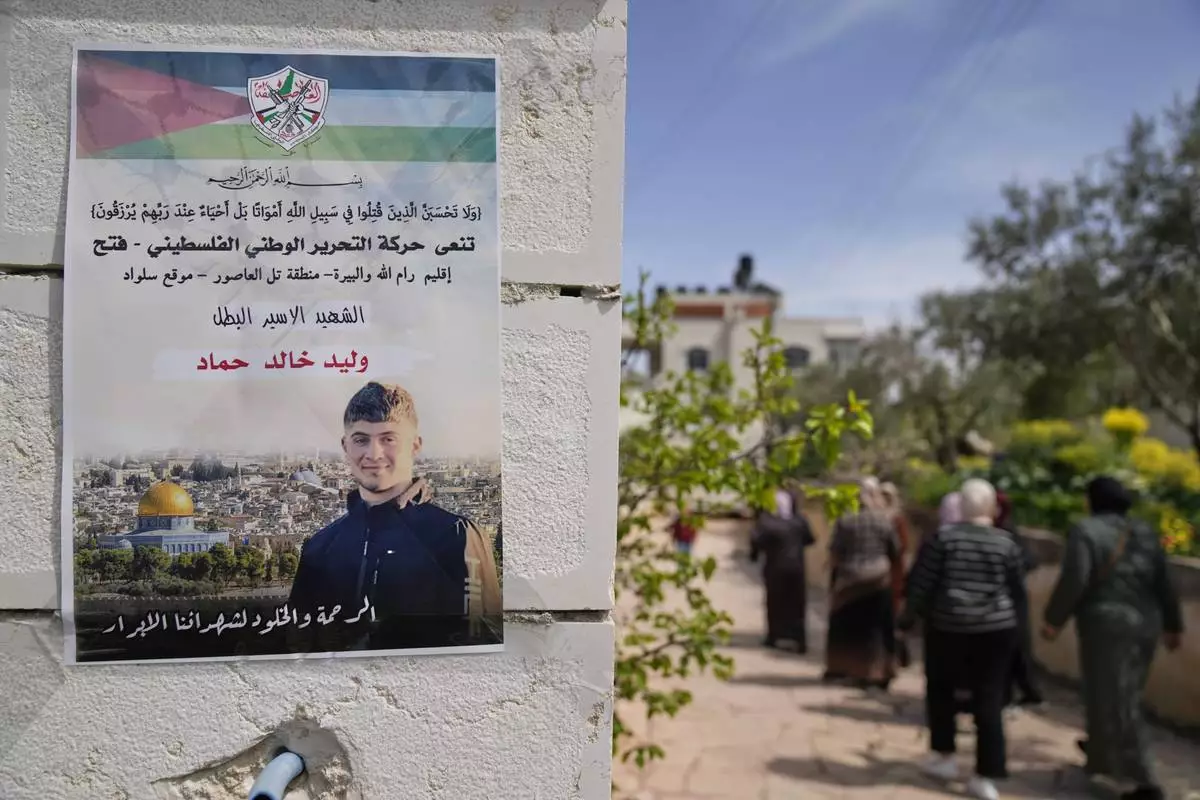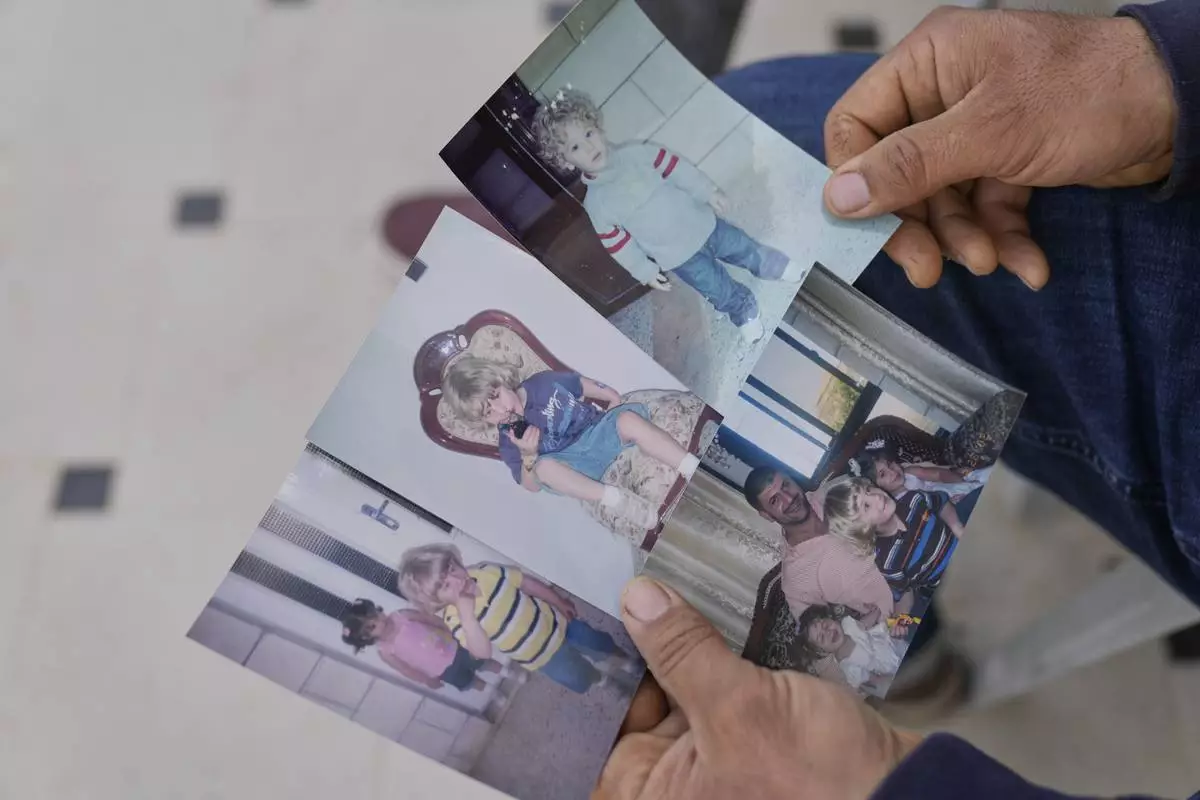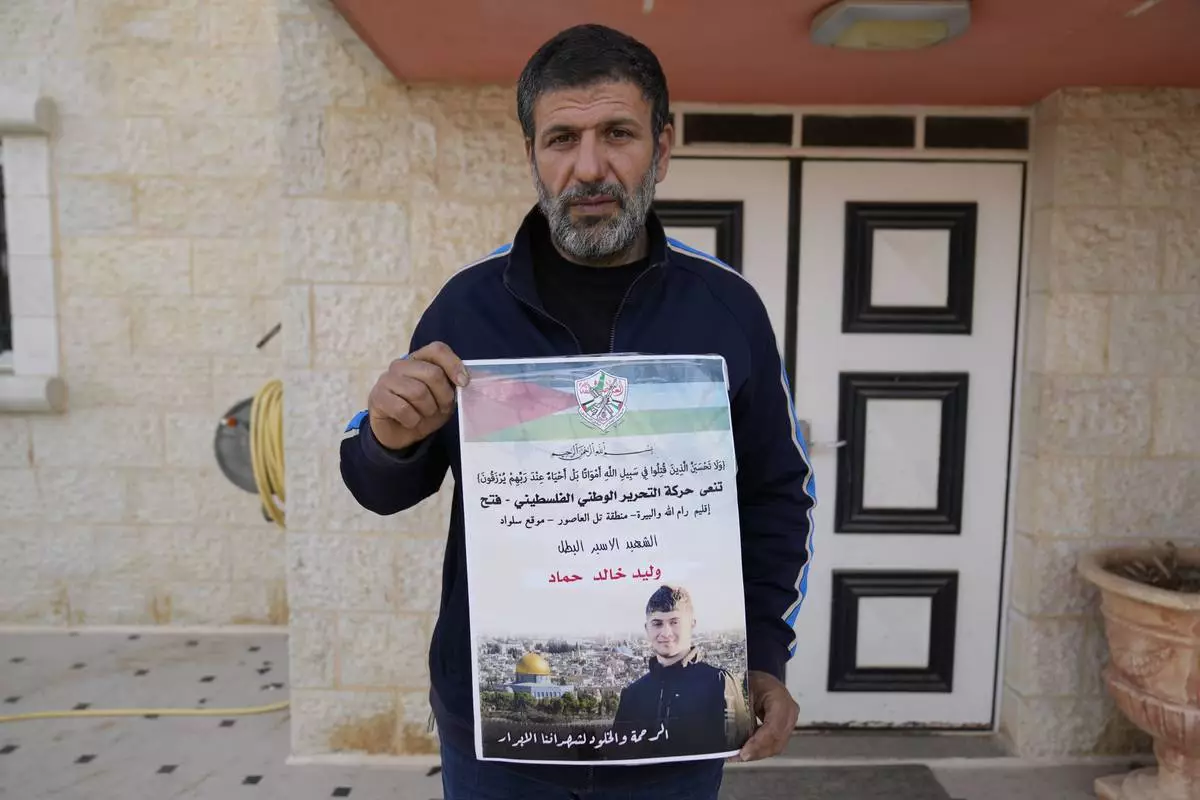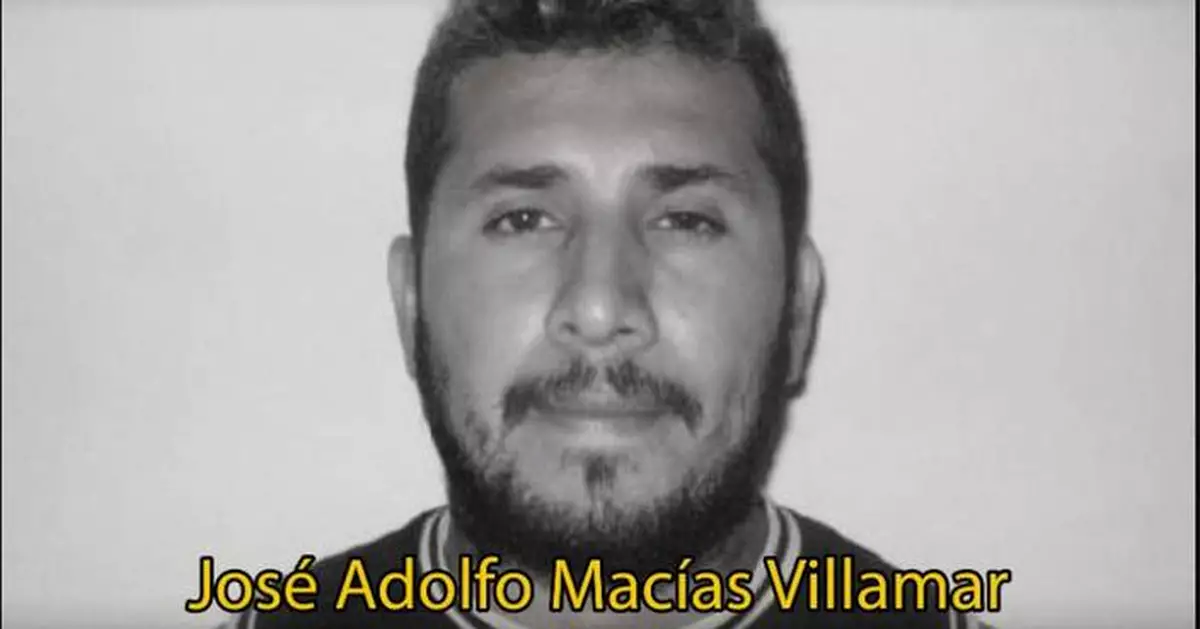NEW YORK (AP) — The fugitive leader of a violent Ecuadorian gang that relied on hitmen, bribes and military weapons to do business has been indicted in New York City on charges he imported thousands of pounds of cocaine into the United States, authorities said Wednesday.
José Adolfo Macías Villamar escaped from a prison in Ecuador last year and is not in U.S. custody. He led Los Choneros and its “network of assassins and drug and weapon traffickers” since at least 2020, U.S. Attorney John Durham said in a news release.
“The defendant was a ruthless leader and prolific drug trafficker for a violent transnational criminal organization,” Durham said.
With an extensive criminal record including charges of murder and organized crime, Macías, whose nickname is “Fito,” has cultivated a cult status among fellow gang members and the public in his home country. While behind bars in 2023, he released a video addressed to “the Ecuadorian people” while flanked by armed men. He also threw parties in prison, where he had access to everything from liquor to roosters for cockfighting matches.
The seven-count indictment unsealed in Brooklyn charges Macías and an unidentified co-defendant with international cocaine distribution, conspiracy and weapons counts, including smuggling firearms from the United States.
Los Choneros employed people to buy firearms, components and ammunition in the United States and smuggle them into Ecuador, according to the indictment. Cocaine would flow into the United States with the help of Mexican cartels. Together, the groups controlled key cocaine trafficking routes through Ecuador, violently targeting law enforcement, politicians, lawyers and civilians who stood in the way.
“Los Choneros operated a vast network responsible for the shipment and distribution of multi-ton quantities of cocaine from South America through Central America and Mexico to the United States and elsewhere,” the indictment says. “The vast majority of drugs trafficked by Los Choneros were imported into the United States, where the drugs were consumed.”
In January 2024, Macías was discovered missing from his prison cell in Guayaquil, Ecuador, where he was serving a 34-year sentence for drug trafficking. Last year, the U.S. classified Los Choneros as one of the most violent gangs and affirmed its connection to powerful Mexican drug cartels who threaten Ecuador and the surrounding region.
Authorities in Ecuador have classified the gang as a terrorist organization. Earlier this month, the Ecuadorian government announced the reward for the capture of Macías would be increased to $1 million.
—
Thompson reported from Buffalo, N.Y.
—
This story has been updated to correct that the location of the prison where José Adolfo Macías Villamar escaped is in Guayaquil, Ecuador, not in Quito, Ecuador.

FILE - This wanted poster posted on X by Ecuador's Ministry of Interior on Jan. 9, 2024, shows José Adolfo Macías Villamar, alias Fito, the leader of Los Choneros gang. (Ecuador's Ministry of Interior via AP, File)
TEL AVIV, Israel (AP) — Starvation was likely the leading cause of death for a Palestinian teenager who died in an Israeli prison, according to an Israeli doctor who observed the autopsy.
Seventeen-year-old Walid Ahmad, who had been held for six months without being charged, suffered from extreme malnutrition, and also showed signs of inflammation of the colon and scabies, said a report written by Dr. Daniel Solomon, who watched the autopsy, conducted by Israeli experts, at the request of the boy's family.
The Associated Press obtained a copy of Solomon's report from the family. It did not conclude a cause of death, but said Ahmad was in a state of extreme weight loss and muscle wasting. It also noted that Ahmad had complained to the prison of inadequate food since at least December, citing reports from the prison medical clinic.
Ahmad died last month after collapsing in Megiddo Prison and striking his head, Palestinian officials said, citing eyewitness accounts from other prisoners. Israel’s prison service said a team was appointed to investigate Ahmad’s death and its findings would be sent to the authorized authorities.
Ahmad is the youngest Palestinian prisoner to die in an Israeli prison since the start of the Gaza war, according to Physicians for Human Rights Israel, which has documented Palestinian prisoner deaths. He was taken into custody from his home in the occupied West Bank during a pre-dawn raid in September for allegedly throwing stones at soldiers, his family said.
The autopsy was conducted on March 27 at Israel’s Abu Kabir Forensic Institute, which has not released a report of its findings and did not respond to requests for comment. The Ahmad family's lawyer, Nadia Daqqa, confirmed Solomon, a gastrointestinal surgeon, was granted permission to observe the autopsy by an Israeli civil court.
Rights groups have documented widespread abuse in Israeli detention facilities holding thousands of Palestinians who were rounded up after Hamas’ Oct. 7, 2023, attack ignited the war in the Gaza Strip. The Palestinian Authority says Israel is holding the bodies of 72 Palestinian prisoners who died in Israeli jails, including 61 who died since the beginning of the war. Israel often holds on to bodies of dead Palestinians, citing security grounds or for political leverage.
Conditions in Israeli prisons have worsened since the start of the war, former detainees have told the AP. They described beatings, severe overcrowding, insufficient medical care, scabies outbreaks and poor sanitary conditions.
Megiddo Prison, a maximum security facility where many Palestinian detainees, including teens, are held without charge, is regarded as one of the harshest, said Naji Abbas, head of the Prisoners and Detainees Department at Physicians for Human Rights Israel.
Israel’s prison service said it operates according to the law and all prisoners are given basic rights.
Ahmad’s lawyer, Firas al-Jabrini, said Israeli authorities denied his requests to visit his client in prison, but three prisoners held there told him Ahmad suffered from severe diarrhea, vomiting, headaches and dizziness before he died. They suspected it was caused by dirty water, as well as cheese and yogurt prison guards brought in the morning and that sat out all day while detainees were fasting for the Muslim holy month of Ramadan, the lawyer said.
According to Dr. Solomon's report the autopsy showed that Ahmed likely suffered from inflammation of the large intestine, a condition known as colitis that can cause frequent diarrhea and can in some cases contribute to death.
But medical experts said colitis usually doesn’t cause death in young patients and was likely exacerbated by severe malnutrition.
“He suffered from starvation that led to severe malnutrition and in combination with untreated colitis that caused dehydration and electrolyte levels disturbances in his blood which can cause heart rate abnormalities and death,” said Dr. Lina Qasem Hassan, the head of the board for Physicians for Human Rights Israel who reviewed the report at the request of the AP.
She said the findings indicated medical neglect, exacerbated by Ahmad’s inability to fight disease or infection because of how malnourished and frail he was.
Dr. Arne Stray-Pedersen, a professor of forensic medicine at the University of Oslo in Norway who was not involved in the autopsy, said the report suggests there was a period of prolonged malnutrition and sickness lasting at least a few weeks or months. “Based on the report, I interpret the underlying cause of death to be emaciation-wasting,” he said.
Scabies rashes were also noted on his legs and genital area, the report said. There was also air between his lungs that expanded into his neck and back, it said, which can cause infection. Air can come from small tears in the lungs, which can occur from severe vomiting or coughing, it said.
Ahmad’s family said he was a healthy high schooler who enjoyed playing soccer before he was taken into custody. His father, Khalid Ahmad, said his son sat through four brief court hearings by videoconference, and he noticed at one of them, in February, that his son appeared to be in poor health.
The family hasn’t yet received a death certificate from Israel, the elder Ahmad said Friday, and are hoping Dr. Solomon's report will help bring his son's body home.
“We will demand our son’s body for burial," he said “What is happening in Israeli prisons is a real tragedy, as there is no value for life.”
AP reporter Jalal Bwaitel contributed from Ramallah, West Bank.

Palestinian women walk past a poster showing Waleed Ahmad that reads in Arabic, "The hero prisoner Martyr, mercy and eternity for our righteous Martyrs," in the West Bank town of Silwad, northeast of Ramallah, Wednesday, March 26, 2025. (AP Photo/Nasser Nasser)

Khalid Ahmad, holds childhood photos of his son, Waleed, at his family home in the West Bank town of Silwad, northeast of Ramallah, Wednesday, March 26, 2025. (AP Photo/Nasser Nasser)

Khalid Ahmad holds a poster of his 17-year-old son, Waleed, who died in an Israeli prison, that reads in Arabic, "The hero prisoner Martyr, mercy and eternity for our righteous Martyrs," in the West Bank town of Silwad, northeast of Ramallah Wednesday, March 26, 2025. (AP Photo/Nasser Nasser)




















































